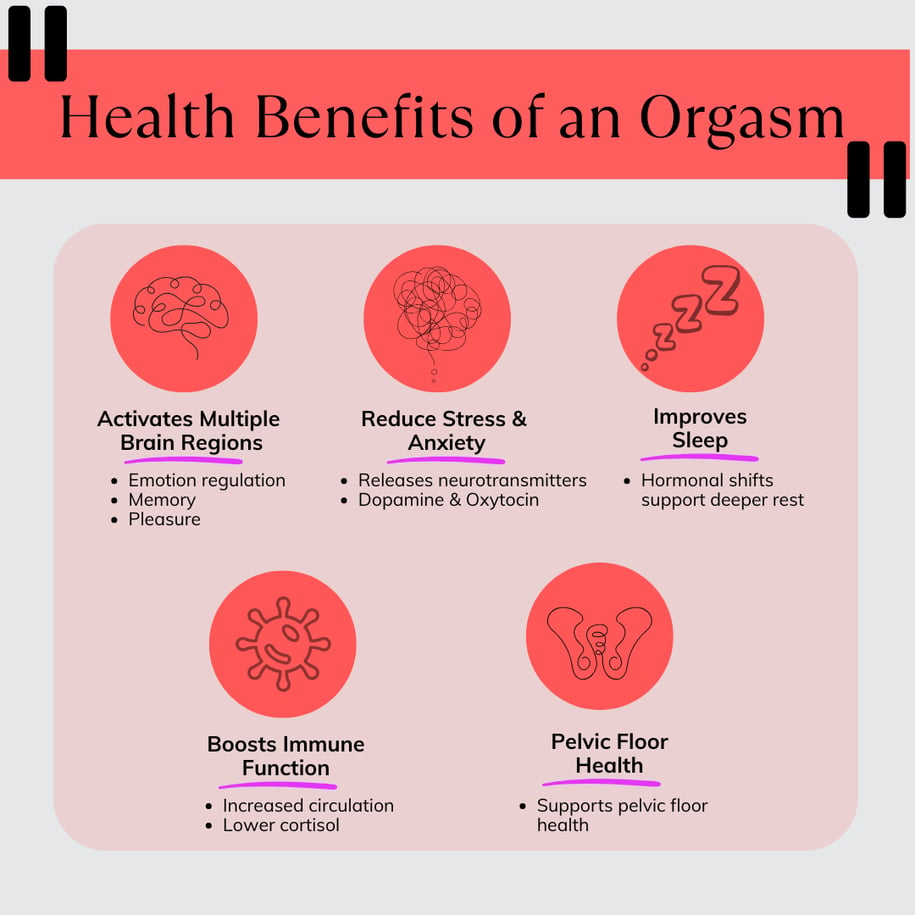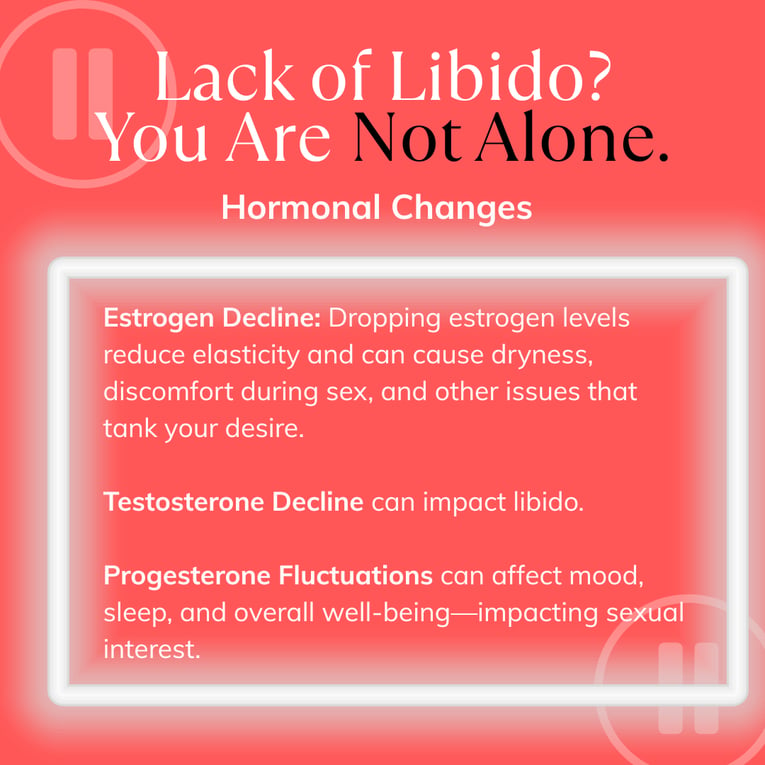%20(960%20x%20540%20px)%20(1200%20x%20630%20px)%20(1600%20x%20900%20px)%20(1600%20x%20900%20px)%20(83).png?width=960&height=540&name=Untitled%20(560%20x%20420%20px)%20(960%20x%20540%20px)%20(1200%20x%20630%20px)%20(1600%20x%20900%20px)%20(1600%20x%20900%20px)%20(83).png)
What Is Sexual Pleasure?
Sexual pleasure is the physical, emotional, and psychological sense of enjoyment and satisfaction that comes from sexual stimulation or connection — either alone or with a partner. It’s not just about orgasm. It’s about feeling good, connected, and alive in your body — sensations, emotions, and intimacy that contribute to overall wellbeing.
Here’s how it breaks down:
🔹 Physically
Sexual pleasure activates the body’s reward system, releasing hormones like dopamine, oxytocin, and endorphins — chemicals that reduce pain, relieve stress, and boost mood. Blood flow increases, muscles relax, and tension melts away.
🔹 Emotionally
It can foster feelings of connection, self-confidence, and empowerment. Sexual pleasure often deepens emotional intimacy with a partner — or with oneself — and supports a healthy sense of self-worth.
🔹 Biologically
Pleasure and orgasm have measurable health benefits:
Improved sleep quality
Lower cortisol (stress hormone) levels
Reduced pain sensitivity
Enhanced pelvic floor tone
Better immune function
Improved mood and cognitive clarity

🔹 Culturally & Psychologically
Sexual pleasure is often misunderstood — especially for women in midlife. Social norms and taboos have made it seem like a “luxury” or “bonus,” when in fact, it’s part of whole-person health. Pleasure is not indulgence; it’s biology in balance.
While an orgasm is not necessary for sexual pleasure, it is an enjoyable outcome and also used as a measurable event in sexual health research.
Orgasm Isn’t Just Fun—It’s Neuroscience.
🧠💥According to Dr. Nan Wise, PhD—neuroscientist, sex therapist, and menopause advocate—orgasm has powerful health benefits that go far beyond the bedroom:
🔹 Activates multiple brain regions: including those involved in emotion regulation, memory, and pleasure.
🔹 Reduces stress and anxiety: through a natural flood of feel-good neurotransmitters like dopamine and oxytocin.
🔹 Improves sleep: post-orgasm hormonal shifts help support deeper rest.
🔹 Boosts immune function: through increased circulation and lowered cortisol.
🔹 Reinforces pelvic floor health: especially important during and after menopause.
And perhaps most importantly?
Orgasm reminds your brain—and body—that pleasure matters.
💬 “We’ve spent too long ignoring the importance of pleasure in mental and physical health,” says Dr. Wise. “It’s time to bring it back into the conversation—especially for women in midlife.”
Sexual Health
“Sexual health is not a fixed state of being, and every person’s needs will change across the life course,” said Ian Askew, former Director of the WHO Sexual and Reproductive Health and Research, including the United Nations Special Research Programme HRP. “This is why it is crucial to undertake a range of activities across this continuum: from support of sexual well-being, to prevention and management of disease.
Menopause & Sexual Pleasure
If your desire has taken a nosedive lately, you’re not alone. Hormonal shifts during perimenopause can mess with your mood, energy, and yes—your mojo. But before you panic (or write it off as your “new normal”), know this: there are tools and treatments that can help. During menopause, estrogen, progesterone, and testosterone can work to impact your libido. Moreover, physical changes related to Genitourinary Syndrome of Menopause can make it harder to achieve orgasm. Check out our related blogs on GSM.

Sexual pleasure is not something to give up on. There are many treatment options and solutions to help.
Book an appointment with a Nurse Practitioner, Therapist, or Pelvic Floor Physiotherapist today!
Register for our newsletter and information at Join PAUZ.
.png?width=50&name=Take%20control%20over%20(13).png)
%20(960%20x%20540%20px)%20(1200%20x%20630%20px)%20(1600%20x%20900%20px)%20(1600%20x%20900%20px)%20(96).png?width=352&name=Untitled%20(560%20x%20420%20px)%20(960%20x%20540%20px)%20(1200%20x%20630%20px)%20(1600%20x%20900%20px)%20(1600%20x%20900%20px)%20(96).png)
%20(960%20x%20540%20px)%20(1200%20x%20630%20px)%20(1600%20x%20900%20px)%20(1600%20x%20900%20px)%20(92)-1.png?width=352&name=Untitled%20(560%20x%20420%20px)%20(960%20x%20540%20px)%20(1200%20x%20630%20px)%20(1600%20x%20900%20px)%20(1600%20x%20900%20px)%20(92)-1.png)
